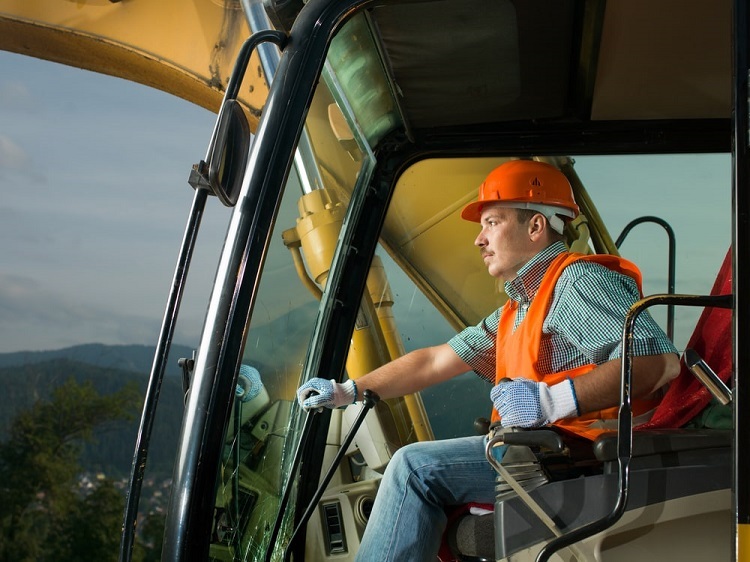Are you considering becoming a heavy equipment operator but aren’t sure yet if it’s the right career for you? Before going through all of the essential heavy equipment training, it’s important to have a clear idea of what the career entails, so we’ve collected some insightful information for you below.
Here you’ll find all you need to know about heavy equipment operator training, as well as the duties and characteristics of a reliable heavy equipment operator!
Table of Contents
The Duties & Responsibilities of a Heavy Equipment Operator
In the simplest terms, heavy equipment operators are the ones you see at construction sites each day running the big machinery, like forklifts, piledrivers, cranes, and more. They often are responsible for moving heavy building materials, earth, and clearing a site for construction.
On any given day, they might be responsible for using a variety of machinery to clear and prepare land, grading it down to make place for roadways, buildings, bridges, and many other different types of structures. In addition to what’s already been mentioned, heavy equipment operators also use heavy-duty machines to dig trenches and lay pipelines for utilities and in rarer, cases, even oil rigs.
Work Environment
The work environment of a heavy equipment operator usually consist of large-scale construction sites, meaning they spend a lot of time outdoors. Construction work takes place year round, and a heavy equipment operator needs to be prepared and experienced working in every type of weather. It’s important to note that although it can be an extremely lucrative career, working with heavy equipment can be dangerous, so taking the proper safety precautions you’ve learned in your heavy equipment training is a must.
Equipment
Some of the most common heavy equipment you’ll be expected to operate at a construction site include:
- Bulldozers: These machines boast a heavy, flat blade in front of them to push along dirt and create open plots of land. They’re often used after a site has been cleared to improve its grading.
- Excavators: This machine is the one with the long bucket arm responsible for scooping and digging up earth. They also come outfitted with attachments, making them able to do everything from clear brush to perform dredging services.
- Dump-Truck: Just as the name implies, dump trucks are responsible for bringing building materials and dumping them at a construction site. They transport everything from sand, concrete mix, rocks, gravel, and more.
- Backhoe Loaders: Although backhoe loaders don’t always fall into the heavy equipment category, it’s useful to include them here anyway because many heavy equipment operators will find themselves behind the wheel of one at one point or another. These machines, like a bulldozer, have a small plate in front and bucket in the back and are designed for space where bulldozers simply can’t fit.
- Graders: Often used exclusively in the building and maintenance of roadways, graders are employed for the fine grading of surfaces, when precision is essential.
Responsibilities
After undergoing thorough heavy equipment training like that provided by 5th Wheel Training Institute, you’ll need to be able to perform a number of different responsibilities to keep moving up the career ladder as a heavy equipment operator, such as:
- Being able to lift more than 50 pounds when needed.
- Boasting great hand-eye coordination.
- Having top communication skills, like speaking and writing.
- Being able to work with others as a team member.
- Having general math skills for calculating weight and mass.
- Boast the ability to work with power tools and other hand tools easily.
- Following the proper safety regulations and procedures.
- Keeping your supervisors updated on any changes in the job status.
- Making minor repairs to your heavy equipment if needed.
- Keeping your heavy equipment well-maintained and repaired.
- Being well-trained to use all of the different types of heavy equipment mentioned above for all the different tasks mentioned.
Along with the responsibilities of accomplishing a number of different tasks and working well with others, being a heavy-duty machinery operator can be quite a demanding job at times. Most importantly, you’ll need to operate the construction equipment you use to specific rules, ordinances, and regulations and ensure you remain in compliance at the building site.
One of the most important duties of any heavy equipment operator is inspecting and setting up their equipment before every job. This takes a keen eye, experience, and the proper training to ensure everything is safe and in working condition. So, don’t be surprised when you’re expected to perform general maintenance and minor repairs on your own.















